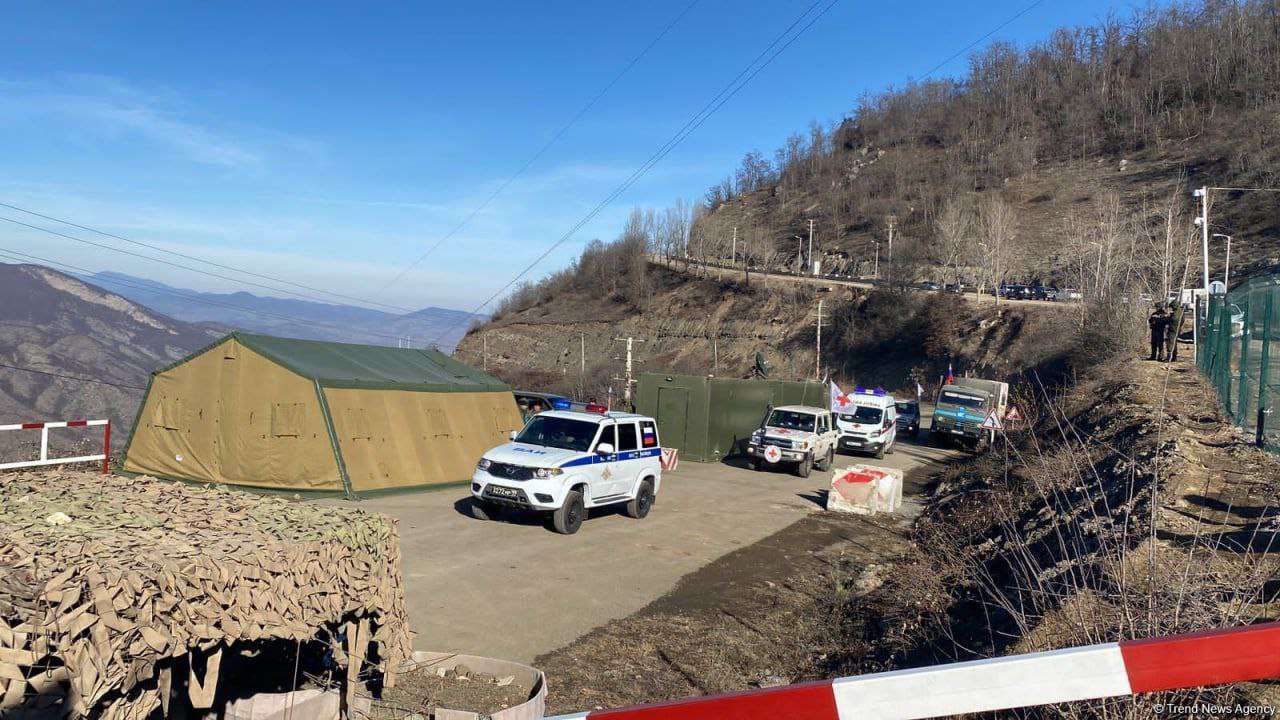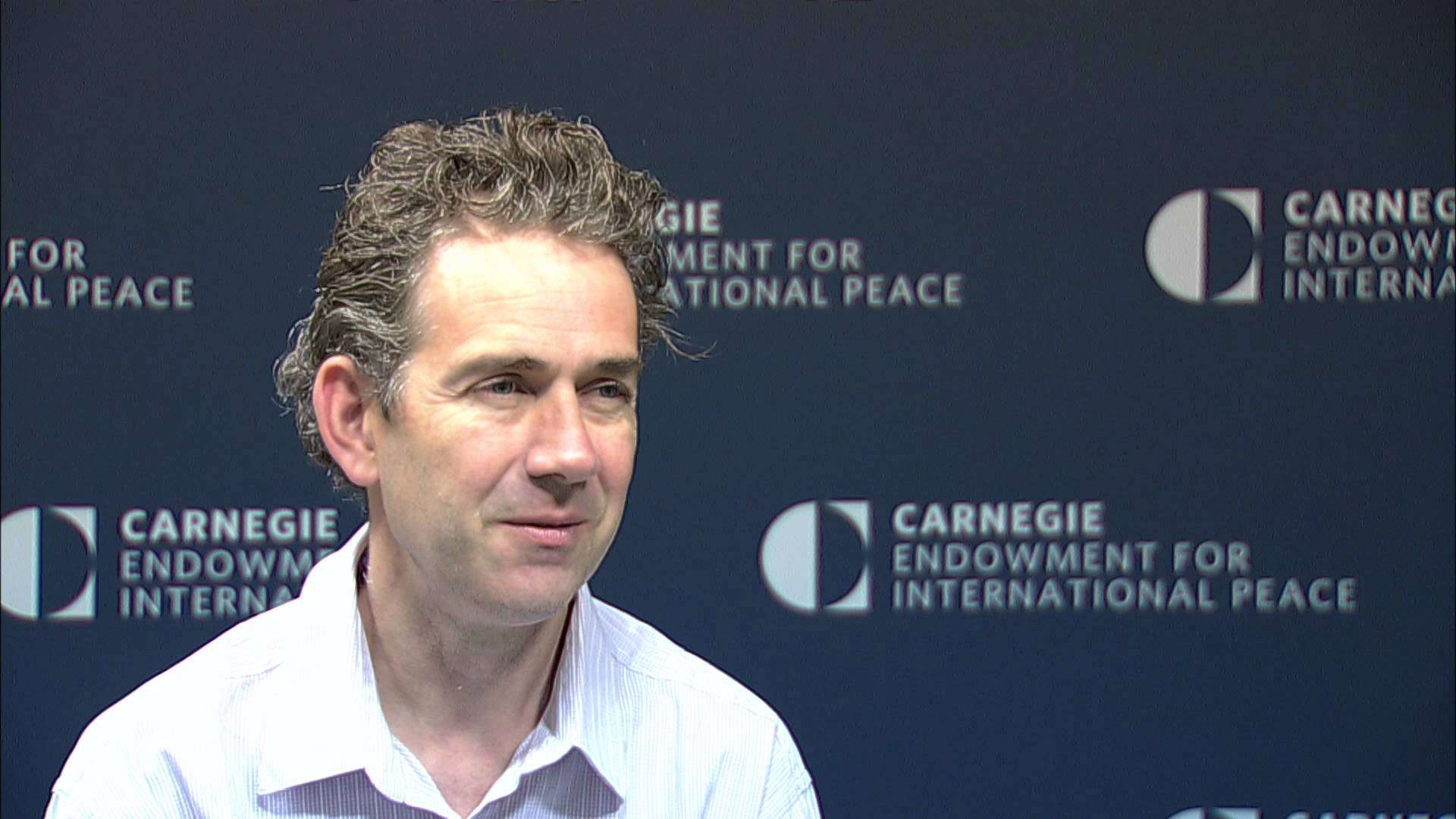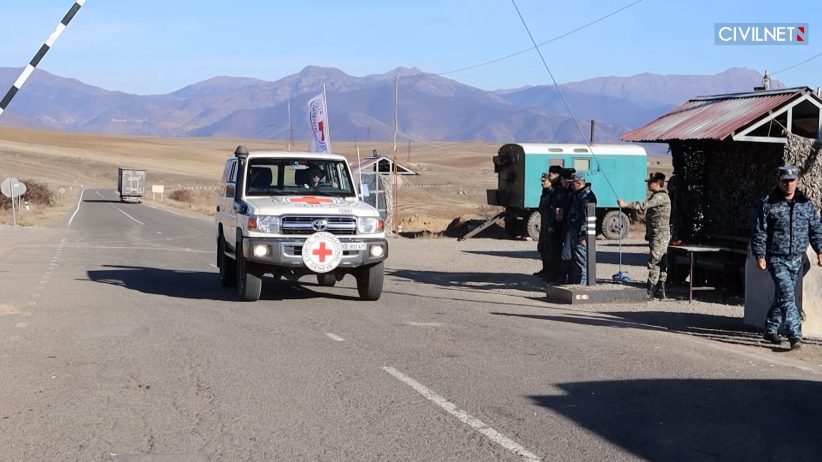“Urgent steps are needed”: on the consequences of the Lachin corridor blockade
Consequences of the Nagorno-Karabakh blockade
“The Armenian authorities have expressed their position — financial and legal support. They say that’s all they can do,” State Minister of the unrecognized NKR, Ruben Vardanyan, said via video conference with Armenian and foreign journalists on January 12.
He considers the blockade of Nagorno-Karabakh which has been going on for more than a month a matter of the right to life and a future, and not just as a humanitarian problem. He also called for emergency measures, but did not specify what exactly during the call.
The Prime Minister of Armenia again made a statement about the blockade of Nagorno-Karabakh, stressing that the blockade is “a provocation, the ultimate goal of which is not only a new military escalation, but also the removal of the Baku-Stepanakert dialogue from the agenda.”
“Avoid statements that drive the situation into a dead end”
During the government meeting, Pashinyan stated his assessment of events has not changed:
“The illegal blockade of the Lachin corridor by Azerbaijan is aimed at breaking the will of the Armenians of Nagorno-Karabakh to live in their homeland. But I believe that their will to be unshakable.”
Regarding a possible resolution of the situation, Pashinyan said that “the reaction of the people of Nagorno-Karabakh and the government should be asymmetrical”:
“First of all, we must avoid political statements that further deadlock the situation, because statements that are not accompanied by a clear vision of achieving the ultimate goal are useless.”
The prime minister emphasized the need to start a political dialogue between Azerbaijan and Nagorno-Karabakh, in connection with which he advises his colleagues in NK not to create a situation that would allow anyone to “blame them for disrupting a constructive conversation or for making such a conversation impossible.”
“The inaction of the international community is unacceptable”
“Unable to evict the people of Artsakh from their homeland by military means, since the establishment of the ceasefire Azerbaijan has made consistent attempts to achieve its criminal goals by less obvious, but no less inhuman methods,” the Foreign Ministry of the unrecognized republic said in a statement.
They also maintain that the blockade is a continuation of the “military aggression of 2020, the policy of genocide” of Azerbaijan:
“Deliberately creating unbearable living conditions, Azerbaijan seeks to undermine the identity and integrity of the people of Artsakh, forcing them to abandon their historical homeland and exercise their collective rights.”
The statement said Azerbaijan was operating “in an atmosphere of absolute impunity” and called on the international community to take action to prevent “systematic genocidal acts carried out by Azerbaijan”:
“The inaction of the international community in the context of the growing catastrophe is also unacceptable because it is seen by the Azerbaijani authorities as a silent encouragement of their criminal actions.”
“The President of Azerbaijan admits that he is keeping the Armenians under blockade”
The official point of view of the Armenian Foreign Ministry on the situation in NK was published by the Armenpress agency. The press secretary of the department, Vahan Hunanyan, in an interview with this publication, dwelt on statements from Azerbaijani President Ilham Aliyev which were made on January 10.
“With his statement that everyone who does not want to live in Nagorno-Karabakh as citizens of Azerbaijan can leave, because the way to leave is open for them, the President of Azerbaijan actually admits that
- Azerbaijan, grossly violating its international obligations stipulated by the tripartite statement of November 09, 2020, has been blockading 120,000 Artsakh Armenians for more than a month,
- deliberately pushes Nagorno-Karabakh into a humanitarian catastrophe.
Azerbaijan recognizes that the ultimate goal of these actions is ethnic cleansing in Nagorno-Karabakh and depriving the Armenians of Nagorno-Karabakh of the opportunity to live in their homeland. Under these conditions, we call on interested international partners to oblige Azerbaijan to stop blocking the Lachin corridor and save the Armenians of Artsakh from the impending catastrophe through clear actions,” Vahan Hunanyan stated.
Since the expert community of Armenia believes that the blocking of the Lachin corridor is connected with Azerbaijan’s demand for the so-called “Zangezur corridor” through the south of Armenia, Hunanyan also touched on this topic. In response to Aliyev’s statement that the project would be realized “whether Armenia wants it or not,” Hunanyan confirmed Armenia’s readiness to unblock all roads. However, he reiterated that Armeniais categorically against the provision of a “corridor”, since this term implies the loss of sovereignty in this territory:
“It is clear that Armenia will never agree to provide an extraterritorial corridor. It is welcome that the leadership of Azerbaijan is finally openly saying that the allegations about the so-called corridor have nothing to do with the tripartite statement of 9 November. The document mentions only one, the Lachin corridor, which has been illegally blocked by Azerbaijan for more than a month.
Threats to open the corridor by force once again clearly demonstrate Azerbaijan’s violation of the principle of non-use of force or the threat of its use, which plays a key role in international law, as well as the absolute contempt of official Baku for the agreements reached with the participation of international mediators.”
Follow us – Twitter | Facebook | Instagram
Consequences of the Nagorno-Karabakh blockade





















